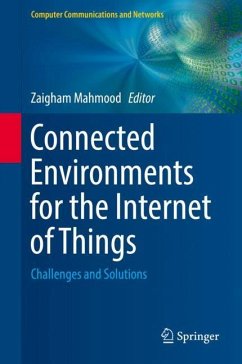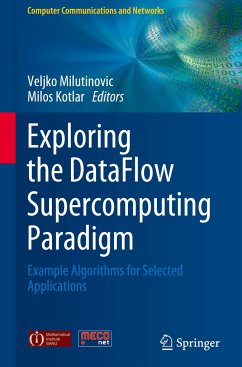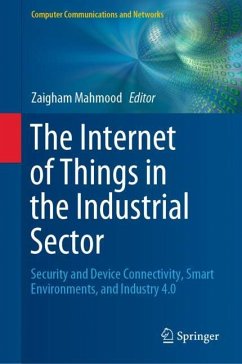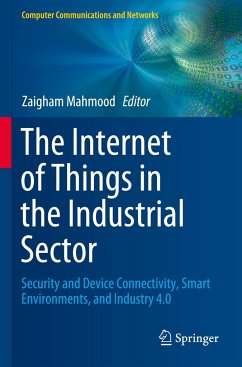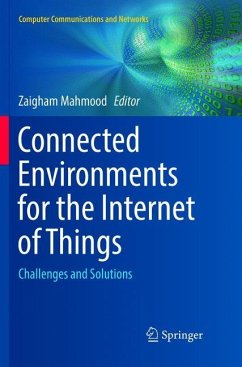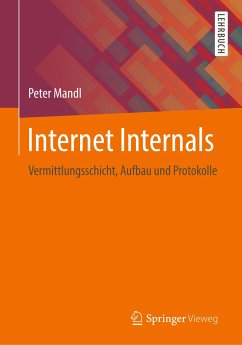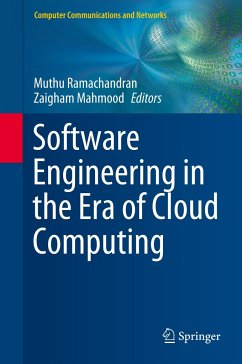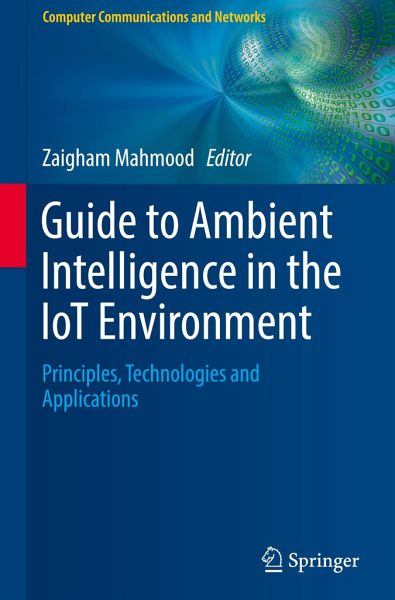
Guide to Ambient Intelligence in the IoT Environment
Principles, Technologies and Applications
Herausgegeben: Mahmood, Zaigham

PAYBACK Punkte
21 °P sammeln!
Ambient intelligence (AmI) is an element of pervasive computing that brings smartness to living and business environments to make them more sensitive, adaptive, autonomous and personalized to human needs. It refers to intelligent interfaces that recognise human presence and preferences, and adjust smart environments to suit their immediate needs and requirements. The key factor is the presence of intelligence and decision-making capabilities in IoT environments. The underlying technologies include pervasive computing, ubiquitous communication, seamless connectivity of smart devices, sensor net...
Ambient intelligence (AmI) is an element of pervasive computing that brings smartness to living and business environments to make them more sensitive, adaptive, autonomous and personalized to human needs. It refers to intelligent interfaces that recognise human presence and preferences, and adjust smart environments to suit their immediate needs and requirements. The key factor is the presence of intelligence and decision-making capabilities in IoT environments. The underlying technologies include pervasive computing, ubiquitous communication, seamless connectivity of smart devices, sensor networks, artificial intelligence (AI), machine learning (ML) and context-aware human-computer interaction (HCI). AmI applications and scenarios include smart homes, autonomous self-driving vehicles, healthcare systems, smart roads, the industry sector, smart facilities management, the education sector, emergency services, and many more. The advantages of AmI in the IoT environment are extensive. However, as for any new technological paradigm, there are also many open issues and limitations. This book discusses the AmI element of the IoT and the relevant principles, frameworks, and technologies in particular, as well as the benefits and inherent limitations. It reviews the state of the art of current developments relating to smart spaces and AmI-based IoT environments. Written by leading international researchers and practitioners, the majority of the contributions focus on device connectivity, pervasive computing and context modelling (including communication, security, interoperability, scalability, and adaptability). The book presents cutting-edge research, current trends, and case studies, as well as suggestions to further our understanding and the development and enhancement of the AmI-IoT vision.




